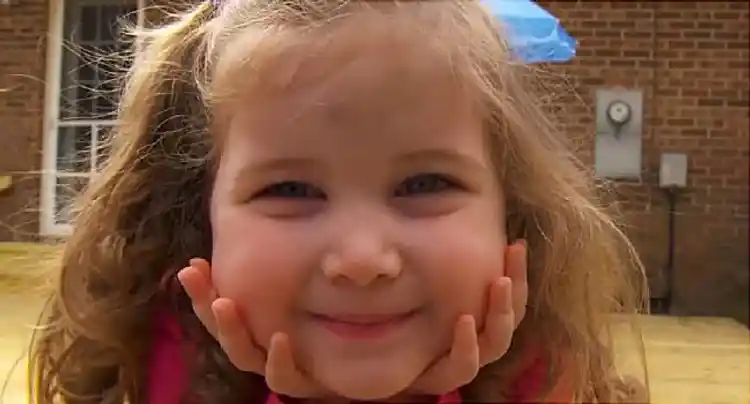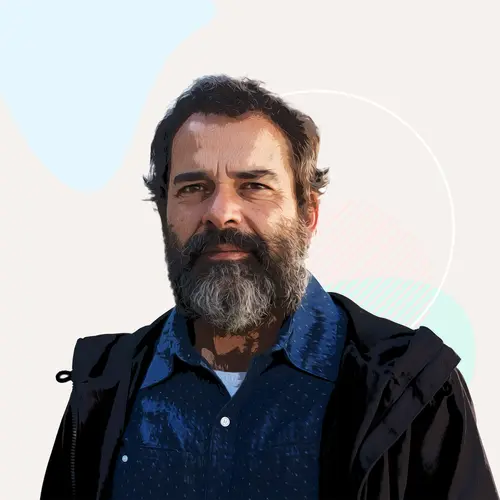Precision Medicine: Custom Treatment From Your Genes

Hide Video Transcript
Video Transcript
Kristen GREEN
We were terrified because we saw she was continuing to deteriorate, that the treatment we were doing wasn't working. And in the back of our heads, it was like, we're not on the right track. ROBIN ROBERTS
A child in distress, no answers, no hope, until a doctor's hunch using a new groundbreaking approach, precision medicine, shines a light on how to save her life, illuminating hope for many others. [MUSIC PLAYING]
How will precision medicine work for the individual?
DR. AREFA CASSOOBHOY
We're looking at a person, their genetic makeup, the environmental triggers IN their life, and their lifestyle. And we're looking to that to focus therapy. Traditionally, when we think of a health issue, we think about treating an illness. With precision medicine, we are really focused on treating the individual. Kristen GREEN
You blow me a kiss? ROBIN ROBERTS
And for Cara Green, finding a more focused therapy through precision medicine was a matter of life and death. Cara was born a seemingly healthy baby. Kristen GREEN
She was a really happy baby. She was very lively. CLAYTON GREEN
Everything was spot on. Everything was even early in terms of her physical abilities. Cara GREEN
Yay! Kristen AND CLAYTON GREEN
Yay! ROBIN ROBERTS
But shortly after Cara turned 15 months old, her parents, Kristen and Clayton started to notice some alarming changes. Kristen GREEN
Cara started having trouble just physically. She first started just being unsteady with walking. Slowly, over time, we noticed that her arms became weak. Cara GREEN
[MUTTERING] Kristen GREEN
Did you drop it? CLAYTON GREEN
The next thing we noticed was she began to fall. But when she would fall, she would fall and hit her head. Kristen GREEN
She got to the point where she was so unsteady walking and fell so often that she actually stopped walking. ROBIN ROBERTS: Frightened and helpless, the Greens sought out the advice of many doctors. But nobody had an answer.
[BABY TALKING]
Kristen GREEN
Well, it was terrible. I mean, watching her every day basically get worse and worse was awful. So it was really, really hard. For so many months, all she could do was sit and have me read to her. It was really hard because those are sweet moments, but they were terrible moments, too. ROBIN ROBERTS
Terrible for the doctors, as well, who were working so hard to try and figure out what was wrong. DR. DAVID GOLDSTEIN: The clinical team had absolutely no idea what she had. But they knew it was very, very, very serious. It was very progressive. And they feared that she wouldn't live very long.
Kristen GREEN
We were so convinced that we were going to lose her and that it was probably going to be pretty soon. ROBIN ROBERTS
There was no consensus. Some doctors thought it could be an autoimmune disorder or even a brain tumor. There were discussions of treating the child with chemotherapy. Kristen GREEN
No matter how much we did, no matter how hard we tried to help her, there wasn't anything that we could do to stop her from getting worse. DR. RICHARD LIFTON
The genetics clinic is frequently one of the last stops in the diagnostic odyssey. ROBIN ROBERTS
Genetic sequencing, which is a cornerstone of precision medicine, has just recently become promising for patients like Cara. DR. RICHARD LIFTON
In 2001, we thought it was a remarkable accomplishment to sequence an entire human genome and do that once. Today, we're doing this thousands of times a day around the world. These lead to not just new diagnoses, but also can lead to new therapies that might not have been thought of previously. DR. DAVID GOLDSTEIN: The last few years have, in fact, stunned us all. The direct sequencing costs to get a single human genome were about a billion dollars. Now, we can sequence an individual for $1,000.
ROBIN ROBERTS
Dr. David Goldstein was doing his own groundbreaking work with gene sequencing when he heard about Cara's case. He was ready to take on the challenge. Kristen GREEN
Dr. Goldstein pretty much said, we're not leaving until we figure out what's going on with this child. DR. DAVID GOLDSTEIN: When a child comes into the clinic and they have something seriously wrong, we can take a blood sample. We can almost immediately generate that individual's complete genome. And we can look through it and try to find the cause of disease.
Kristen GREEN
They collected blood from me and my husband and from Cara and sent it off to their lab. DR. DAVID GOLDSTEIN
What we found were two mutations that were really just as-clear-as-day responsible for her condition. So when we saw those mutations, we knew for sure that Cara didn't have an autoimmune disease. ROBIN ROBERTS
What she had was a rare genetic disorder called Brown-Vialetto-Van Laere Syndrome. The discovery was a milestone for Dr. Goldstein. DR. DAVID GOLDSTEIN
That doesn't always happen. Sometimes, when you sequence a patient, you see something that looks suspicious, but you can't be sure. In Cara's case, the mutations just stood up and said hello, here we are. We're responsible. ROBIN ROBERTS
The sequencing showed that both of Cara's parents carried a gene mutation that affected Cara's ability to produce a protein, which resulted in her having a severe Vitamin B2 deficiency. Kristen GREEN
In that moment where we got the diagnosis, I think I was just in shock. CLAYTON GREEN
I just was completely-- I was speechless. Kristen GREEN
After we received Cara's diagnosis, they did give us a treatment plan for her. And it was just high dose Vitamin B2, which is a benign treatment. ROBIN ROBERTS: An oral supplement that would help cure Cara of her symptoms.
Kristen GREEN
We started to see progress after we started in treatment very quickly. Cara's doing phenomenal today. She is now able to play with her toys. She can feed herself. She's actually learning letters. Cara GREEN
What's that say? Kristen GREEN
What does that say? Cara GREEN
Bye! Kristen GREEN
As the weeks went on, she just kept getting a little bit better and a little bit better. ROBIN ROBERTS
The joy Cara's family felt was shared by Dr. Goldstein and his team. DR. DAVID GOLDSTEIN
When you see the result of the work in a situation like Cara, where you really have helped a little girl and a lovely little girl-- Cara GREEN
I did it. DR. DAVID GOLDSTEIN
--it's hard not to be emotionally drawn into it. ROBIN ROBERTS
Cara's story provides a window into the potential of precision medicine. DR. DAVID GOLDSTEIN
Before too long, everything that we do in terms of caring for patients will be influenced by knowledge of their genomic make-up. DR. RICHARD LIFTON
Our goal should be to prevent every preventable disease and treat every treatable disease. And this knowledge is going to give us the opportunity to do that. ROBIN ROBERTS
Without a doubt, Cara's story exemplifies that goal. And today, Cara is thriving, as is her family. Cara now has a little sister and a future. Kristen GREEN
Dr. Goldstein and his team, we credit him for saving Cara's life. She's getting to be a kid and make up for lost time. Cara GREEN
Bye. CLAYTON GREEN
Oh! Kristen GREEN
Woo! 